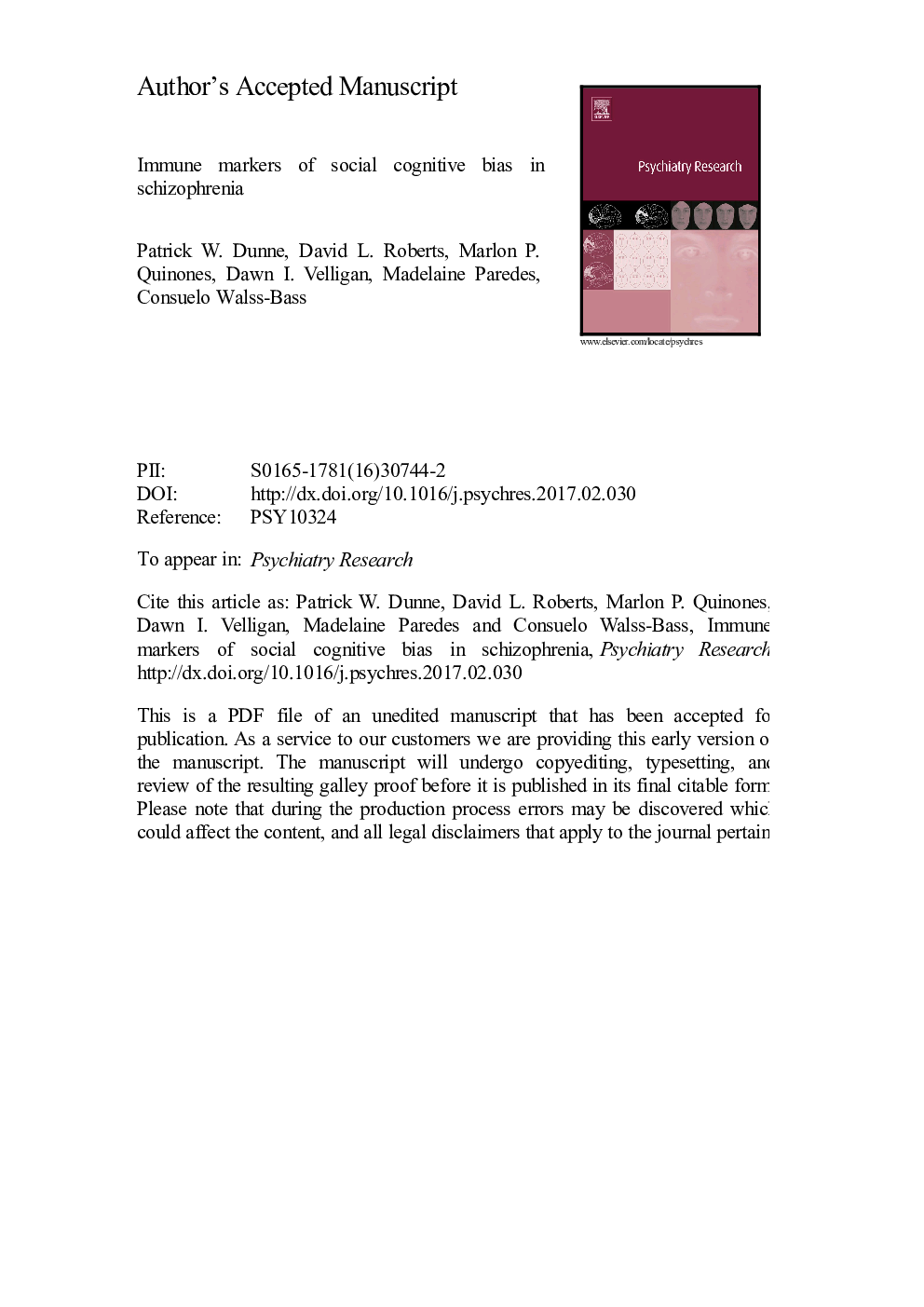| Article ID | Journal | Published Year | Pages | File Type |
|---|---|---|---|---|
| 4933587 | Psychiatry Research | 2017 | 27 Pages |
Abstract
Social cognition is impaired in schizophrenia, is relatively independent of purely neurocognitive domains such as attention and executive functioning, and may be the strongest predictor of functional outcome in this disease. Within a motivated reasoning framework, we tested the hypothesis that the anti-inflammatory Th2-associated cytokines, IL-10 and MDC, would be correlated with behavioral measures of social cognitive threat-detection bias (self-referential gaze detection bias and theory of mind (ToM) bias) in delusional versus non-delusional patients. We administered to schizophrenia patients with delusions (n=21), non-delusional patients (n=39) and controls (n=20) a social cognitive task designed to be sensitive to psychosocial stress response (the Waiting Room Task) and collected plasma levels of inflammatory markers using a bead-based flow immunoassay. Results partially supported our hypothesis. The anti-inflammatory cytokine IL-10 was associated with self-referential ToM bias in the delusional cohort as predicted, and not with non-delusional patients or healthy controls. This bias reflects a documented tendency of schizophrenia patients with delusions to excessively attribute hostile intentions to people in their environment. Since this cytokine correlated only with ToM bias and only in delusional patients, elevated levels of this cytokine in the blood may eventually serve as a useful biomarker distinguishing delusional patients from both non-delusional patients and healthy controls.
Keywords
Related Topics
Life Sciences
Neuroscience
Biological Psychiatry
Authors
Patrick W. Dunne, David L. Roberts, Marlon P. Quinones, Dawn I. Velligan, Madelaine Paredes, Consuelo Walss-Bass,
